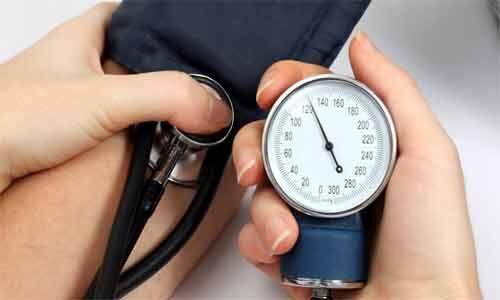Higher Uric Acid Concentration May Lead To High BP: PLOS One
- byDoctor News Daily Team
- 23 July, 2025
- 0 Comments
- 0 Mins

Japan: Higher uric acid concentration at baseline is associated significantly with non-attainment of optimal blood pressure (NOBP) on the first use of antihypertensive drug(s), according to a recent study published in the journal PLOS One.
There exists a significant relationship between increased uric acid concentration and both prevalent and incident hypertension. However, there is a scarcity of data regarding the influence of higher uric acid concentration at baseline on blood pressure (BP) control by antihypertensive drugs. To fill this gap, Yuji Sato, National Health Insurance Takachiho Town Hospital, Takachiho, Miyazaki, Japan, and colleagues performed a prospective cohort study.
This study enrolled Japanese community-based cohort (N = 8,664; age 65.5 ± 6.4 years; women, 55.0%) who were not using antihypertensive drugs on the first visit for a health check-up program but started using antihypertensive drug(s) on the next-year visit. The participants were classified into quartiles based basic uric acid concentration. Odds ratios (ORs) were calculated for non-attainment of optimal blood pressure (NOBP) as the primary outcome measure.
The study outcome was the non-attainment of optimal blood pressure (NOBP). NOBP level was defined according to the Japanese hypertension guideline.
Key findings of the study include:
Multivariable logistic analysis showed that quartile 4 was significantly associated with NOBP when quartile 1 was set as the reference (OR, 1.36), adjusted for potential confounders, such as age, sex, body mass index, presence of diabetes/dyslipidemia/chronic kidney disease (CKD), a history of cardiovascular disease, daily drinking, and current smoking.
In the subgroup analysis of female participants and participants with diabetes and CKD, a significant association was observed between +1 mg/dL of uric acid and NOBP.
"Higher uric acid concentration at baseline was significantly associated with NOBP on the first use of antihypertensive drug(s)," concluded the authors.
The study obviously demonstrated that higher baseline uric acid level could have negative effects on antihypertensive therapy; therefore, hyperuricemia should be raised as one of the important factors in the management of hypertensive subjects.
The study, "Higher baseline uric acid concentration is associated with non-attainment of optimal blood pressure," is published in the journal PLOS One.
DOI: https://doi.org/10.1371/journal.pone.0236602
Disclaimer: This website is designed for healthcare professionals and serves solely for informational purposes.
The content provided should not be interpreted as medical advice, diagnosis, treatment recommendations, prescriptions, or endorsements of specific medical practices. It is not a replacement for professional medical consultation or the expertise of a licensed healthcare provider.
Given the ever-evolving nature of medical science, we strive to keep our information accurate and up to date. However, we do not guarantee the completeness or accuracy of the content.
If you come across any inconsistencies, please reach out to us at
admin@doctornewsdaily.com.
We do not support or endorse medical opinions, treatments, or recommendations that contradict the advice of qualified healthcare professionals.
By using this website, you agree to our
Terms of Use,
Privacy Policy, and
Advertisement Policy.
For further details, please review our
Full Disclaimer.
Tags:
Recent News
Eli Lilly plans to build new USD 3 billion facilit...
- 04 November, 2025
Rajkot Maternity Hospital CCTV Leak: How a simple...
- 04 November, 2025
Gland Pharma profit rises 12 percent to Rs 184 cro...
- 04 November, 2025
AIIMS Delhi doctors told to use Hindi in prescript...
- 04 November, 2025
Daily Newsletter
Get all the top stories from Blogs to keep track.


0 Comments
Post a comment
No comments yet. Be the first to comment!